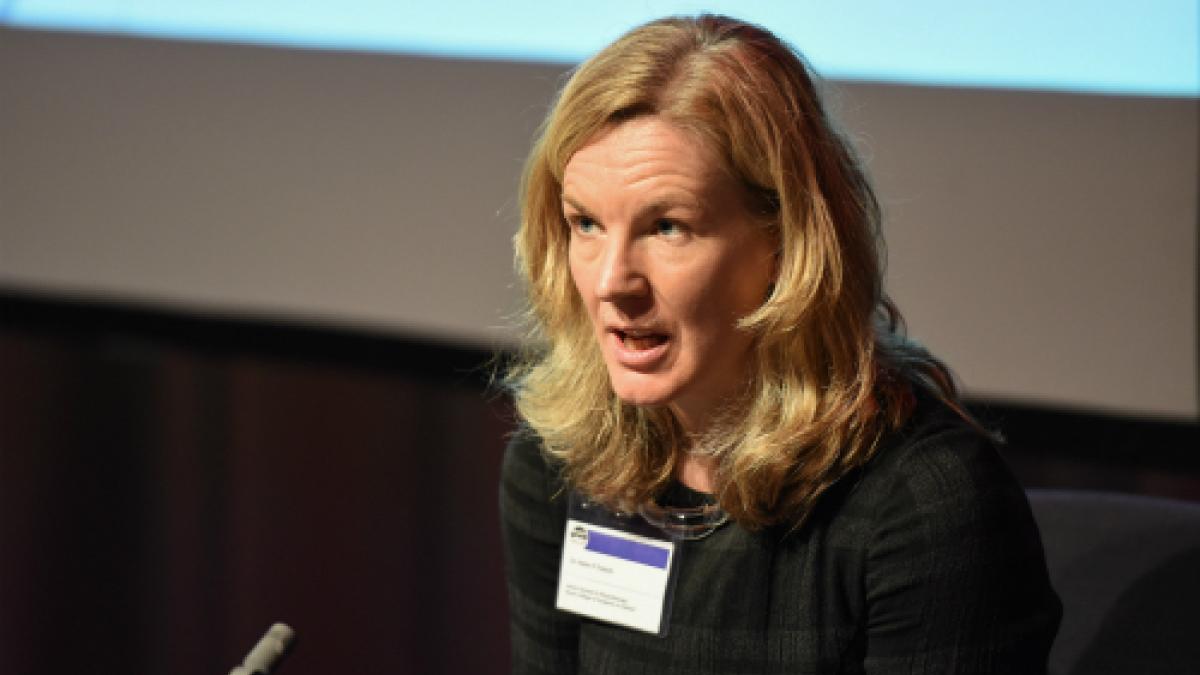Physical therapists need to develop new skills and evolve to meet the challenges of a changing world.

Helen French, a physiotherapy lecturer at the Royal College of Surgeons in Ireland. Photo: Darren O’Brien/Guzelian
This was one of the messages in a discussion panel about how the physiotherapy profession should develop its workforce and adjust its skills mix to meet the changing needs of patients.
Helen French, a senior lecturer in physiotherapy at the Royal College of Surgeons in Ireland, said that factors to take into account included an increasingly ageing population, the obesity epidemic and rapid advances in technology.
She told delegates: ‘The children that are being born now are “digital natives” and we need to be able to communicate with them.’
Professional specialisation was likely to become more important, she advised, and she offered examples of the competencies that physical therapists of the future will require.
‘They will need leadership, inter-professional working, critical thinking and reflective practice, innovation and technological competencies,’ she said.
Update healthcare education
Nitie Mardjan, an educator and researcher at Saxion University in the Netherlands, told delegates: ‘I’m sure you have noticed that things are changing – socially, politically, economically and environmentally – society is in transition and that means healthcare needs to change as well!’
He suggested that healthcare education required a revamp, in order to produce a new type of healthcare professional.
Healthcare students need to be lean about complex situations and processes, he said, and to develop entrepreneurialism, creative thinking and research skills.
‘Rather than saying “I am a therapist who works with patients” the future physical therapist is likely to explain that they are a professional who structures complex processes within their organisation so that patients’ needs can be addressed more efficiently.’
Make use of the ‘hidden army’
Meanwhile Richard O'Connell, therapy support team leader at Birmingham Children's Hospital NHS Trust, said a ‘hidden army’ of support workers could help healthcare services to respond to changing population needs.
He told delegates how the role of support assistants had changed at his trust and shared ways of developing and advancing the assistant workforce, using apprenticeship schemes as an example.
Delegates heard that the benefits of developing an assistant workforce include
- getting the right job done by the right person
- improved opportunities for support staff
- better recruitment and retention
- a happier workforce
- an increased therapy profile
‘Assistants can bring a wealth of information and support to the wider workforce, but developing their potential requires organisation commitment,’ said Mr O’Connell.
Author: Robert Millett
Number of subscribers: 0



































